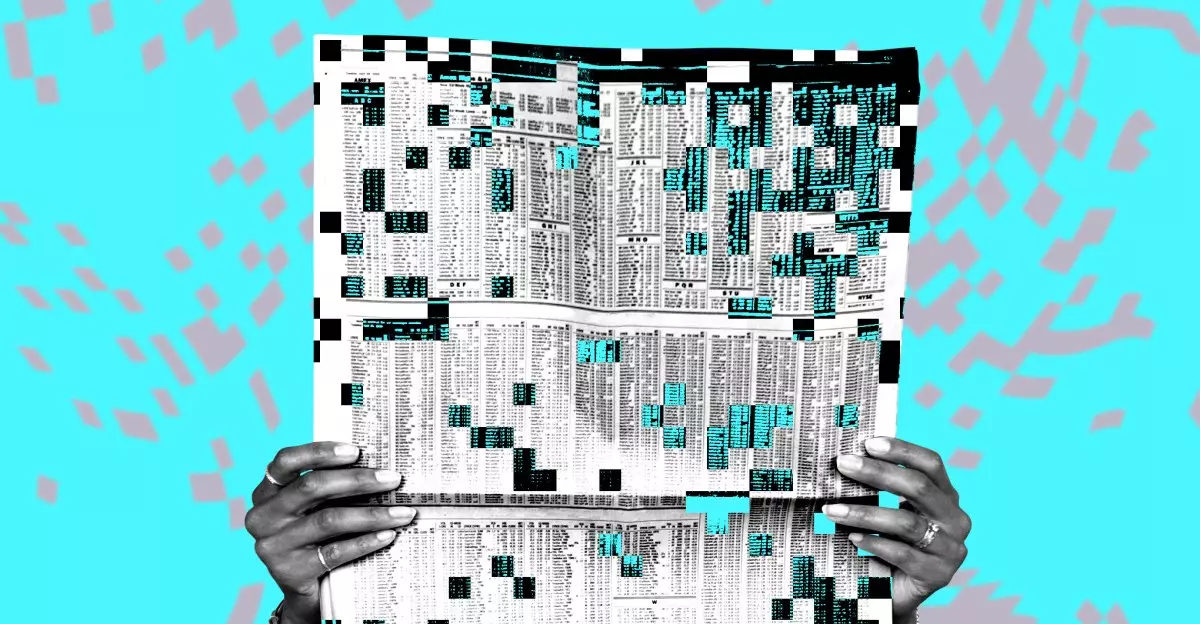In an era dominated by technological advancement, the battle for fair compensation and copyright integrity has escalated significantly. Publishers across the United States are uniting in a bold advertising campaign aimed directly at Big Tech companies, demanding that they “make Big Tech pay for the content it takes.” This collective endeavor underscores a critical shift in the relationship between traditional media and tech giants that profit from digital content creation without due compensation.
The campaign, aptly named Support Responsible AI, features a coalition that includes well-renowned publishers such as The New York Times, The Washington Post, and The Guardian. By leveraging both print and digital platforms, they promote impactful slogans like “Stop AI Theft” and “AI Steals From You Too.” These messages aim to resonate with the public and amplify the debate about content ownership in the context of Artificial Intelligence. By encouraging citizens to engage with their representatives, the campaign is not merely about drawing attention; it initiates a vital conversation about the ethical implications of AI usage in media.
The Industry’s Response to AI Power Dynamics
At the heart of this campaign lies a pressing concern that publishers’ content is being utilized without authorization or fair compensation. Danielle Coffey, President and CEO of the News/Media Alliance, succinctly articulates the frustrations of content creators, noting that tech companies are leveraging the very materials that fuel their AI models, effectively siphoning off revenue from the original creators. This situation highlights a crucial point: the news media sector does not oppose AI itself; it advocates for a balanced framework where technology can coexist with copyright protections.
The timing of this campaign is especially poignant. In recent weeks, major AI developers like OpenAI and Google have addressed lawmakers, vying for permission to use copyrighted materials for refining their models. This juxtaposition raises broader questions about the ethical responsibilities of tech companies. Should they not be bound to support the artists and writers whose work underpins their innovations? The answer is increasingly becoming a resounding ‘yes.’
A Global Perspective: Learning from International Campaigns
Interestingly, the emergence of this campaign in Canada reverberates with initiatives taken in the UK, where major newspapers launched a similar outcry featuring the slogan “MAKE IT FAIR.” This indicates a united front among publishers worldwide, serving to enforce the narrative that the protection of intellectual property transcends borders. Readers and creators alike must recognize the importance of defending creative rights in this rapidly evolving tech landscape.
Honing in on the essence of media integrity, it is apparent that the demand for change is driven by a desire to protect not just the economic rights of creators, but also the future of quality journalism. Without appropriate regulations, the very nature of creativity may be at risk, as automated systems churn out vast quantities of content devoid of the authenticity and nuance that only human creators can provide.
Engaging the Public in the Fight for Fairness
This advertising campaign stands out for its strategic engagement of the public. By utilizing QR codes and direct messaging pathways to legislators, it empowers consumers to voice their opinions in a tangible way. What’s clear is that this is not just a battle among media conglomerates and tech companies; it encompasses every individual who values the depth, integrity, and diversity of creative content.
The future of content creation hinges on collective awareness and action. Now, more than ever, it is crucial for society to rally behind initiatives that aim not only to secure fair compensation for creators but also to ensure that AI works in service of, rather than against, the richness of human creativity.


Leave a Reply